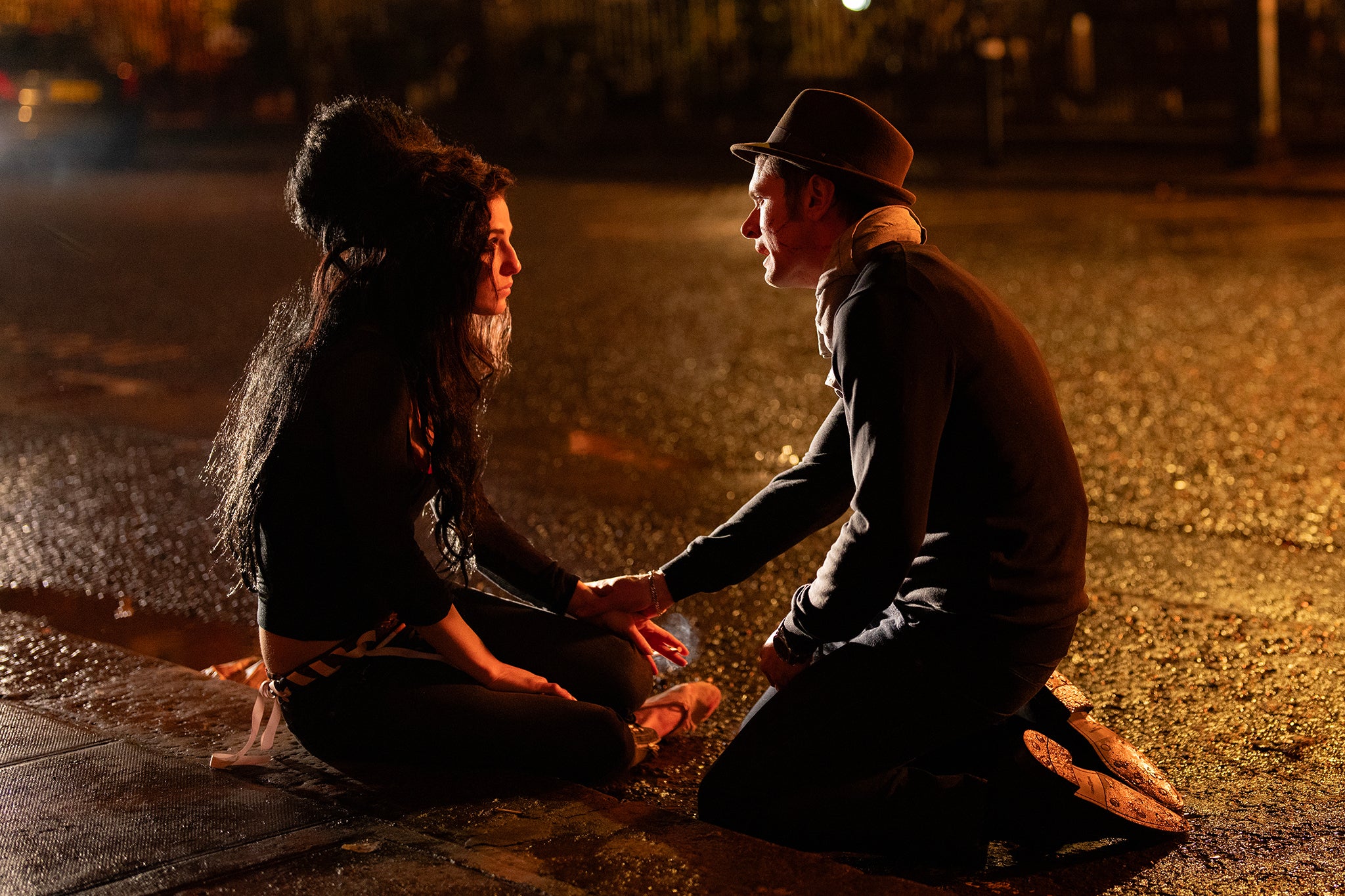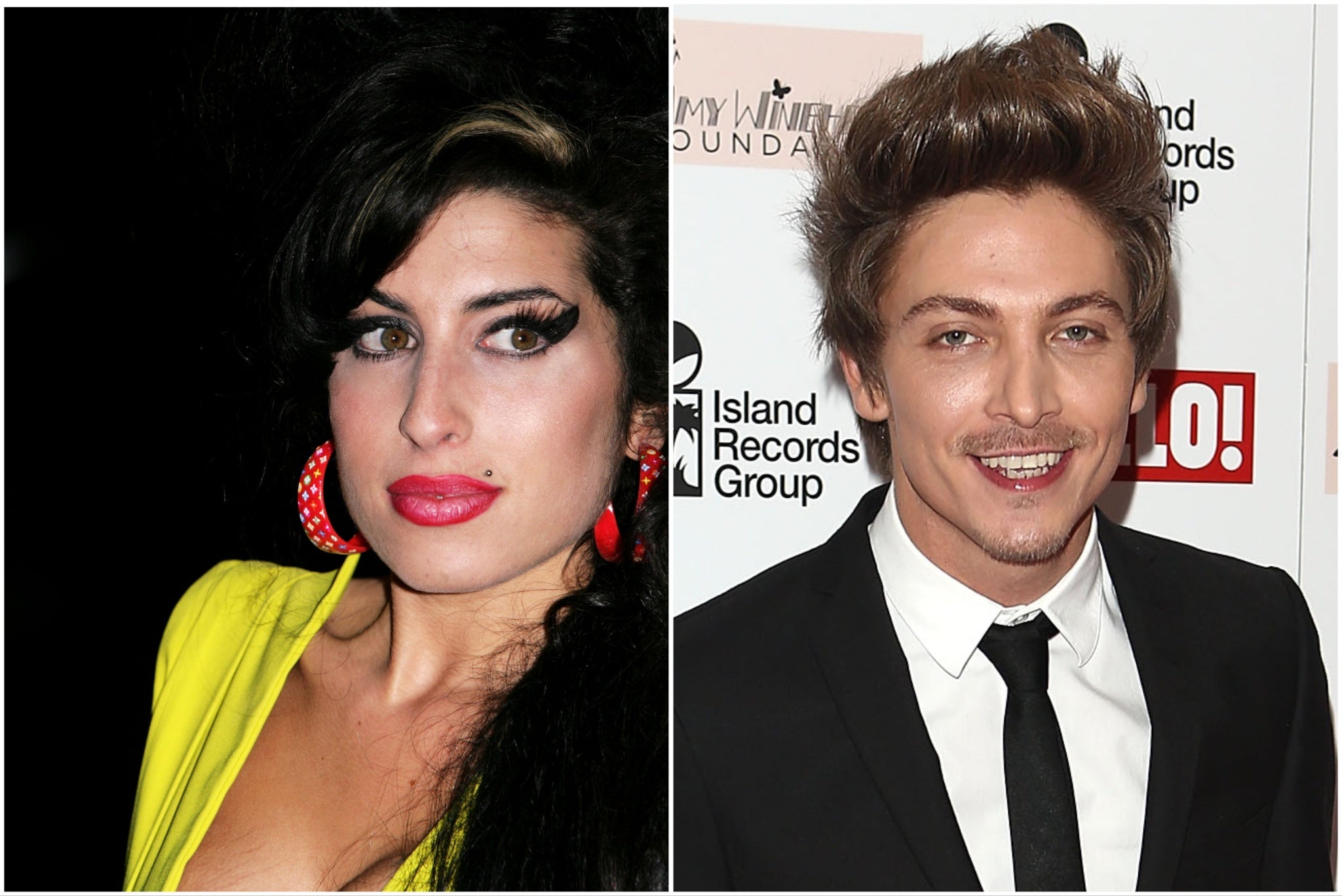Amy Winehouse’s best friend praises one thing about ‘dreadful’ Back to Black film
Troubled star would be ‘fuming’ at how she’s depicted in Sam Taylor-Johnson’s new film, says Tyler James
Your support helps us to tell the story
From reproductive rights to climate change to Big Tech, The Independent is on the ground when the story is developing. Whether it's investigating the financials of Elon Musk's pro-Trump PAC or producing our latest documentary, 'The A Word', which shines a light on the American women fighting for reproductive rights, we know how important it is to parse out the facts from the messaging.
At such a critical moment in US history, we need reporters on the ground. Your donation allows us to keep sending journalists to speak to both sides of the story.
The Independent is trusted by Americans across the entire political spectrum. And unlike many other quality news outlets, we choose not to lock Americans out of our reporting and analysis with paywalls. We believe quality journalism should be available to everyone, paid for by those who can afford it.
Your support makes all the difference.Tyler James, the best friend to late singer Amy Winehouse, has condemned a new biopic about the singer as he claims that it fails to capture the “amazing, beautiful” person he knew.
Back to Black stars Marisa Abela as the “Rehab” singer, with Jack O’Connell as her husband, Blake Fielder-Civil.
The movie was directed by Sam Taylor-Johnson, and follows a young Winehouse (Abela) as she meets Fielder-Civil in a pub just as her career is beginning to take off, then as she falls into a spiral of substance addiction and eating disorders.
The film has received mixed to negative reviews from critics, with The Independent’s Charlotte O’Sullivan condemning the “cringeworthy” use of metaphors and suggesting it’s “not worth taking seriously”.
James has now offered a similarly withering take, declaring that Winehouse herself would be “fuming” at how she’s depicted.
“I was not expecting it to be realistic or completely accurate,” he told The Sun on Sunday. “But it was worse than I thought it would be. It was dreadful and does not do her justice.
“They sugar coated, glossed over her amazing life and missed out huge chunks. It is not telling her story. So much more could have been told in this film that would have built up a better and fuller picture of who Amy was.”

James, a singer currently based in Ireland, met Winehouse aged 12 when they both attended Sylvia Young Theatre School in London. They became firm friends and lived together from the age of 18 until Winehouse’s death.
“I wasn’t upset because I was watching her life story, because the film was so far removed from my life with Amy and the reality, there were so many odd inaccuracies,” he said of Back to Black.
James is only depicted briefly in the film, with actor Spike Fearn taking on the role, despite spending so much time with her.
“I don’t need to be there throughout a film to know what we meant to each other. I was there for her in real life and this is just a film. And I actually felt detached from it. It was like watching a fantasy, make believe,” he said.

However, he did say he was happy to see how the film showed that Winehouse “really did” love Fielder-Civil: “And he loved her. I liked Blake and I am pleased he wasn’t made out to be an absolute villain, because he wasn’t.
“Often there has been no sympathy for him, as though he was responsible for everything.”
Fielder-Civil himself recently appeared in an interview on Good Morning Britain to discuss how he has been perceived by the public since Winehouse’s death, and how he feels about Back to Black.
He and the “Love is a Losing Game” artist met in a pub in 2005 and dated on-and-off before marrying in 2007. They divorced two years later.
Appearing on Friday’s (12 April) episode of Good Morning Britain, Fielder-Civil told the ITV show’s hosts that he found the film “almost therapeutic in a way” and that he believed some parts made him felt seen “in a more accurate representation”.
“Not in a sense of being let off the hook or whitewashed, as [has] been alluded to... just in a sense of it wasn’t all about addiction,” he said.
“As much as that might have been the salacious headlines, and the paparazzi’s goal, there was addiction, but it was only an aspect. The relationship started like every relationship does.”

Join our commenting forum
Join thought-provoking conversations, follow other Independent readers and see their replies
Comments